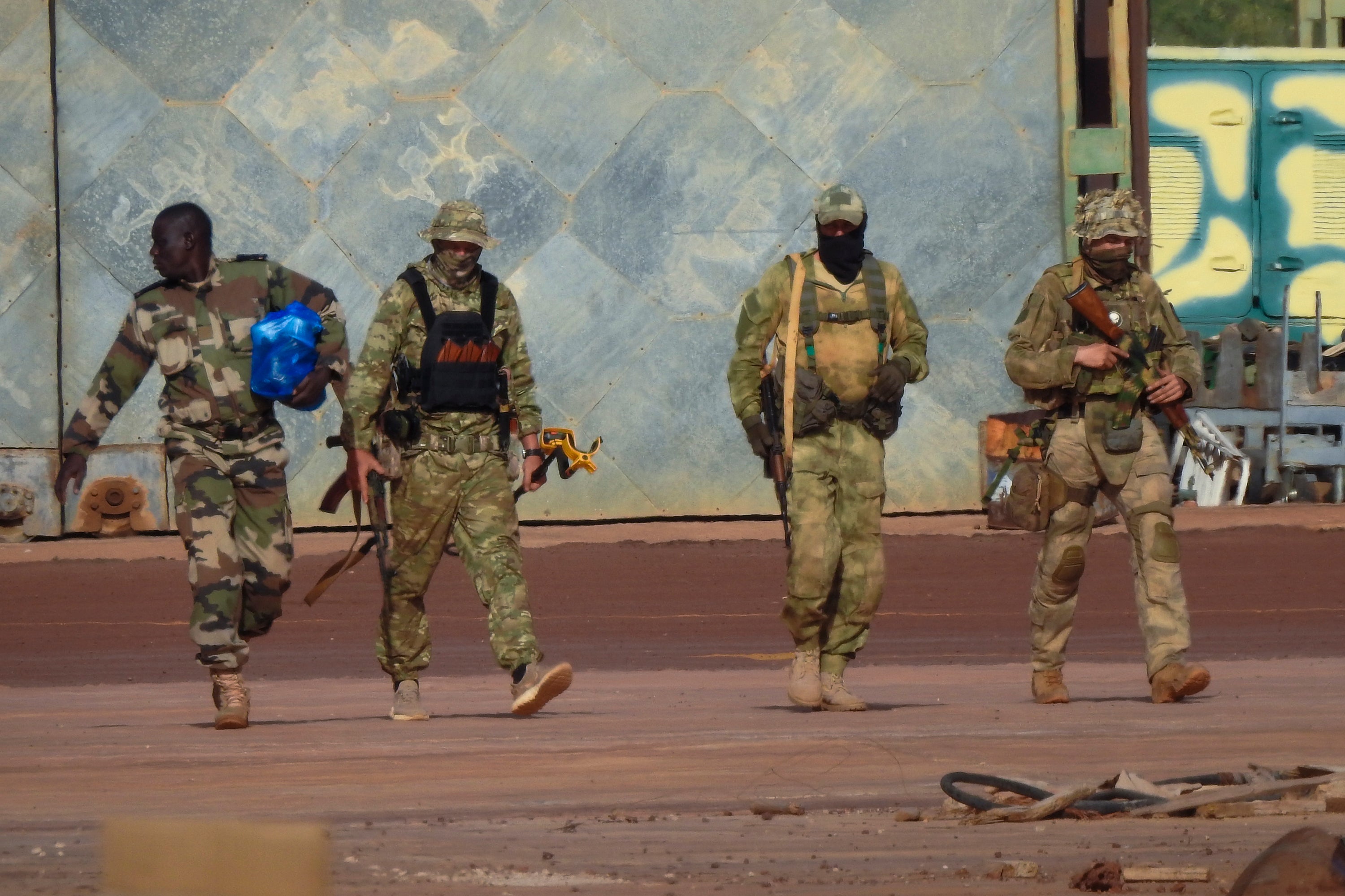Claims Russian Wagner mercenaries are killing civilians in Mali
The presence doesn’t appear to have changed since Yevgeny Prigozhin died in a suspicious plane crash last year

The Russian mercenary group Wagner is helping government forces in central and northern Mali carry out raids and drone strikes that have killed scores of civilians, including many children, rights groups said in reports published this week.
Mali, along with its neighbors Burkina Faso and Niger, has for over a decade battled an insurgency fought by jihadi groups, including some allied with al-Qaida and the Islamic State group. Following military coups in all three nations in recent years, the ruling juntas have expelled French forces and turned to Russia's mercenary units for security assistance instead.
Violence has escalated in Mali since Russian mercenaries arrived there following a coup in 2021. Its ruling junta has ramped up operations, carrying out deadly drone strikes that have hit gatherings of civilians, and raids accompanied by Russian mercenaries that have killed civilians.
Residents of the Sahel region that includes Mali say Russia’s presence doesn’t appear to have changed since Wagner's leader, Yevgeny Prigozhin, died in a suspicious plane crash last year.
“Mali’s Russia-backed transitional military government is not only committing horrific abuses, but it is working to eliminate scrutiny into its human rights situation,” Ilaria Allegrozzi, senior Sahel researcher at Human Rights Watch, in a statement Thursday.

In an example of a raid carried out by Russian-backed government forces in January, Human Rights Watch said the army entered a village near a military base in central Mali and arrested 25 people, including four children. Their bodies were found later that day blindfolded and with bullet wounds to the head, the report said.
Amnesty International said in separate report earlier this week that two drone strikes in northern Mali killed at least 13 civilians, including seven children aged 2 to 17. A pregnant woman who was injured in the bombing miscarried days after the attack, it said.
Human Rights Watch has said the Turkish-supplied drones in Mali are capable of delivering precise laser-guided bombs. The group has also documented how drone strikes have killed civilians. In one example, a drone strike in central Mali’s Segou region killed at least seven people at a wedding, including two boys, it said. The following day, a second drone strike targeted a funeral held for those killed in the previous day’s strike.
The juntas ruling Mali, Niger and Burkina Faso earlier this month announced a joint security force to fight the worsening extremist violence in their Sahel region. This follows steps taken by the juntas to step away from other regional and Western nations that don’t agree with their approach and rely on Russia for security support instead.
Although the militaries had promised to end the insurgencies in their territories after deposing their respective elected governments, conflict analysts say the violence has instead worsened under their regimes. They share borders and their security forces fighting jihadi violence are overstretched.
Bookmark popover
Removed from bookmarks